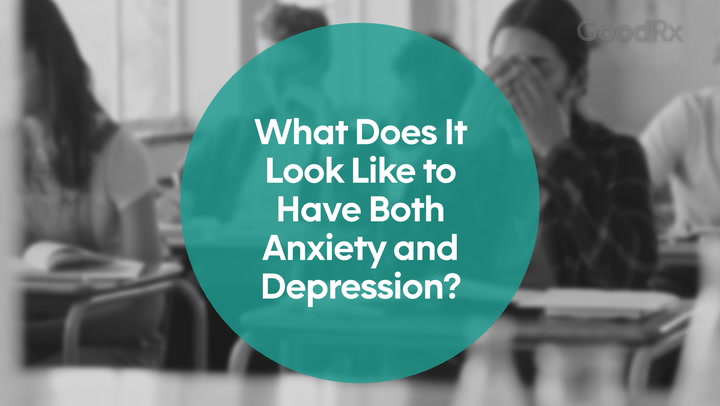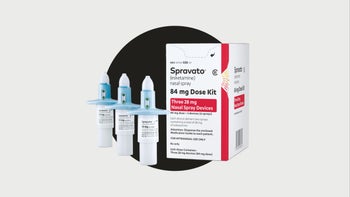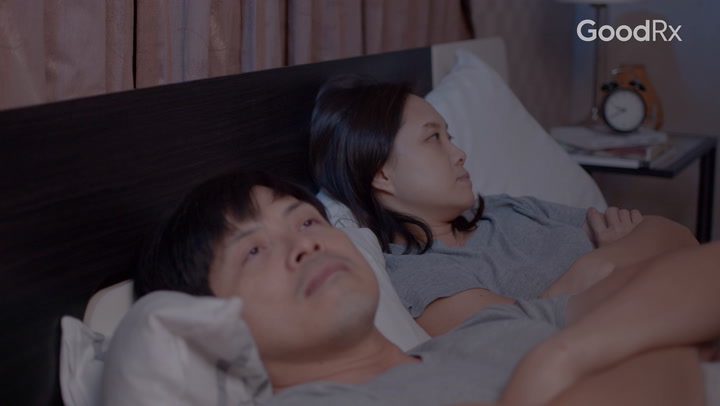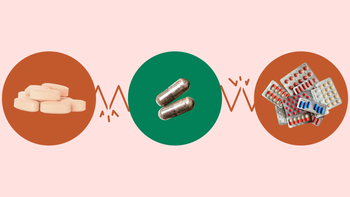
What's the Best Antidepressant for Anxiety and Depression? Results from 4000 Reviews of 5 Popular Antidepressants
Key takeaways:
Out of 4,000 consumer reviews, about 60% of people who tried Effexor (venlafaxine), Cymbalta (duloxetine), Prozac (fluoxetine), Zoloft (sertraline), or Celexa (citalopram) said the medication was worth it.
The best antidepressant for anxiety and depression depends on a lot of personal factors, such as your symptoms, medical history, and tolerance for side effects.
“Worth it” scores aren’t a widely accepted way to evaluate a medication’s effectiveness. They’re helpful for informational purposes only. Data from clinical trials and other studies are a more reliable way to judge a medication’s helpfulness.

With so many medications for depression to choose from, finding one that works is often a long process. This is because the best antidepressant for anxiety and depression varies for everyone.
Alongside your personal preferences, health experts use data and various clinical guidelines to try and find the best medication that meets your needs. However, the best match on paper doesn’t always turn out to be the real best match. Some trial and error may be involved when finding your best fit.
Since it’s not always an exact science, it’s sometimes nice to hear first-hand experiences about your options. Here, we’ll take a look at 4,000 reviews of five popular antidepressants — Effexor (venlafaxine), Cymbalta (duloxetine), Prozac (fluoxetine), Zoloft (sertraline), and Celexa (citalopram) — to see what some people had to say about their personal experiences with them.
Search and compare options
What is a ‘worth it’ score?
Here, a “worth it” score is a rating that someone gave to a medication. The following “worth it” scores reflect how well each antidepressant worked for the people reviewing it. Zero percent is the worst possible score, and 100% is the best.
All five of the antidepressants received “worth it” scores of around 60%, meaning that 60% of the reviewers who tried them said they were worth it. Compared to a score of 80%, which heartburn medications sometimes get, 60% might seem low. But treating depression is tricky — matching someone to the best antidepressant often takes patience and perseverance.

Keep in mind: These scores don’t predict how you will react to these medications. Every person’s body is unique and has its own way of processing and reacting to medications. So if you do try one of these medications, your experience might be very different from what you see in the reviews. The statistics we’re discussing here are only meant to be a starting point to give you an idea of what other people have experienced.
Plus, these “worth it” scores aren’t a widely accepted way to evaluate a medication’s effectiveness. They’re mostly helpful for a quick comparison.
Effexor (venlafaxine)
Worth it score: 62%
Effexor belongs to a class of medications known as serotonin and norepinephrine reuptake inhibitors (SNRIs). They can help improve symptoms of depression and anxiety by raising the levels of two chemicals (serotonin and norepinephrine) in the brain. It’s available as an immediate-release and extended-release (ER) medication. ER medications work in your body for longer.
Common side effects of Effexor include nausea, sleepiness, dry mouth, and others.
Cymbalta (duloxetine)
Worth it score: 58%
Just like Effexor, Cymbalta is a SNRI. Cymbalta can treat depression and anxiety, along with certain types of chronic pain. Possible side effects of Cymbalta include sleepiness, headaches, and gastrointestinal problems.
SNRIs, like Cymbalta, don’t mix well with alcohol, and consuming both at the same time can be dangerous. So, even if you only drink alcohol occasionally, let your healthcare provider know and ask if this is the right medication for you. These alcohol-related risks also apply to the other medications in this list.
Prozac (fluoxetine)
Worth it score: 62%
Prozac is a selective serotonin reuptake inhibitor (SSRI), which means it treats depression and other mood disorders by boosting serotonin levels in the brain.
This medication comes with a risk of several side effects — such as trouble sleeping, drowsiness, and stomach upset — but more than half of the reviewers said it was worth it. All SNRIs and SSRIs, including Prozac, can also cause side sexual effects. The specific odds of developing sexual dysfunction vary by medication.
Zoloft (sertraline)
Worth it score: 59%
Zoloft is another SSRI antidepressant that can also treat depression and certain types of anxiety. It causes side effects similar to those of Prozac. Some of these side effects go away after a month of taking these medications, but others can last longer.
Celexa (citalopram)
Worth it score: 61%
Celexa is another SSRI that treats depression. But unlike the medications above, it’s not FDA-approved for certain types of anxiety.
Though the reviews suggest that it causes fewer side effects than the antidepressants above, Celexa can be risky for those with liver or heart disorders. Other potential downsides to Celexa include risks like sweating and heart palpitations.
How do medications like Effexor, Cymbalta, and Zoloft compare?
There are many studies out there that compare the effectiveness of antidepressants. In general, the most effective medication changes in almost every study. So, after looking at all of the data that’s available, the American Psychiatric Association (APA) found that antidepressants are similarly effective for treating depression.
Other than that, the best medication for you will depend on a number of factors, including:
Out-of-pocket costs
Personal preferences
Medication availability in your area
Your age
Medical history
Health condition(s) being treated
Preferred dosage form (tablet, liquid, etc.)
Anticipated side effects
Possible risks
Medication interactions
Previous success with antidepressants (if applicable)
It's natural to feel torn between antidepressant medications, given similar “worth it” scores and other factors. For example, Effexor vs. Zoloft or Cymbalta vs. Effexor are common medications people tend to compare. Since they’re often similarly effective, it's best to talk with a pharmacist and healthcare provider. Their advice will be made specific to your needs and medical history.
Keep in mind, these also aren’t the only antidepressants that are available. Other ones are also approved. They work in unique ways and cause different side effects.
For example, other SSRIs are available, such as Lexapro (escitalopram) and Paxil (paroxetine). Other SNRIs, like Pristiq (desvenlafaxine), are also possibilities.
Plus, other classes of antidepressants also exist. These include options like Remeron (mirtazapine), tricyclic antidepressants, and monoamine oxidase inhibitors (MAOIs).
What’s the best antidepressant to help you feel happy?
While most people find Effexor and Prozac to be more “worth it,” this doesn’t necessarily make them the best antidepressants. There’s too much variability from person to person to generalize a single antidepressant as the best option.
Whether or not you decide to take any of these antidepressants, be open with your healthcare provider about how you’re feeling, both physically and mentally. Treatment for depression can look very different from person to person and may involve therapy, medications, or a combination of both. It may take some trial and error before you find what works well for you, but involving your healthcare provider can help you get there.
The bottom line
The “worth it” scores provided here may be helpful for informational purposes. Out of about 4,000 reviews, 60% of reviewers who tried these antidepressants said they were worth it.
That said, there are several factors to think about when starting an antidepressant or switching to a new one. Based on your specific situation, your pharmacist and healthcare provider can help you find an antidepressant when needed, to meet your specific preferences and needs.
Why trust our experts?



References
Allergan. (2022). Celexa [package insert].
American Psychiatric Association. (2010). Practice guideline for the treatment of patients with major depressive disorder (MDD).
College of Psychiatric and Neurologic Pharmacists. (n.d.). Treatment guidelines: Depression.
Dista Products Company. (2021). Prozac [package insert].
Eli Lilly and Company. (2021). Cymbalta [package insert].
Iodine. (n.d.). Depression (major depression).
Roerig. (2021). Zoloft [package insert].
Wyeth Pharmaceuticals LLC. (2021). Effexor XR [package insert].
For additional resources or to connect with mental health services in your area, call SAMHSA’s National Helpline at 1-800-662-4357. For immediate assistance, call the National Suicide Prevention Lifeline at 988, or text HOME to 741-741 to reach the Crisis Text Line.

























